
Ranbir Kaleka. Man Threading Needle. Still from video. Projection size: 26" x 35.5". 1999. Images courtesy of the artist and Vadehra Art Gallery, New Delhi.
THIS ESSAY IS TAKEN FROM THE ART/TECHNOLOGY ISSUE OF ART INDIA VOLUME IV, ISSUE III, 1999.
The Image
Ranbir Kaleka's most recent artwork, Man Threading Needle (1999),¹ is presented to the viewer as a painting set on a good easel and placed in a darkened alcove of what is presumably the white box of the museum or gallery. The painting is lit rather as you might find an old master painting set apart for special attention when it has just been acquired and holds pride of place in the collection, or when it is isolated to make a point at the time of a curated exhibition. Knowing that 'a work of art' gains its meaning from the process of viewing it in the sacred space of the art gallery, you enter the space demarcated by Kaleka imbued with the requisite awe. Thereon the artist's ingenuity has to be matched by the viewing protocol: together this yields unexpected meanings. The light comes from a (hidden) projector. The image occasionally twitches, it responds to a periodic sound that punctuates and penetrates the image - as it does the spectator. Slowly, you realize that Kaleka has manipulated the image: he has doubled (tripled?) its affect by a video projection of a real man a painted image of the same man. He has done what must be written into the script for a painter who turns to another form of visuality: he matches image to image as between painting and video, he makes it faintly animate, he presents it theatrically, as an installation.
This story is from the {{IssueName}} edition of {{MagazineName}}.
Start your 7-day Magzter GOLD free trial to access thousands of curated premium stories, and 9,000+ magazines and newspapers.
Already a subscriber ? Sign In
This story is from the {{IssueName}} edition of {{MagazineName}}.
Start your 7-day Magzter GOLD free trial to access thousands of curated premium stories, and 9,000+ magazines and newspapers.
Already a subscriber? Sign In

Parts, Wholes And The Spaces In Between
Sonal Sundararajan introduces Samira Rathod's free-spirited and rebellious explorations in the world of architecture, furniture and design.
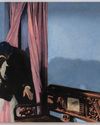
"The Fine Art of Going to the Pictures."
Dr. Banerjee in Dr. Kulkarni's Nursing Home at Chemould Prescott Road brings together 26 paintings featuring a series of dramatic scenes from Hindi and Bengali films. In conversation with Abhay Sardesai, artist Atul Dodiya talks about childhood trips to movie halls, painted figures gripped by tension, and the closeness and remoteness of cinematic images.

"To Finally Have Something of Your Own to Mine."
Dayanita Singh is the recipient of the coveted 2022 Hasselblad Award. Keeping the photograph at the centre, she speaks to Shreevatsa Nevatia about books, book objects, photo novels, exhibitions and museums.

OF DIVINE LOSS
Shaurya Kumar explores the relationship between the subject and object of devotion, finds Aranya.
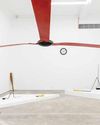
THE PAST AND ITS SHADOWS
Neha Mitra visits two shows and three artists in Mumbai.
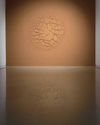
FORCE OF NATURE
Alwar Balasubramaniam dwells on absences and ephemeralities in his new work, states Meera Menezes.
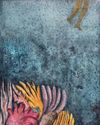
SHAPES OF WATER
Devika Sundar's works delineate the murky, malleable boundaries between the human body and the organic world, says Joshua Muyiwa.

INTIMATIONS OF INTIMACY
Sunil Gupta shares his journey with Gautami Reddy.
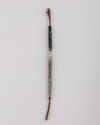
THE FRACTURED PROSPECT
Nocturnal landscapes as ruins in the making? Adwait Singh looks at Biraaj Dodiya's scenes of loss.
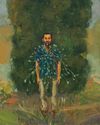
TEETERING BEYOND OUR GRASP
Meera Menezes traces Mahesh Baliga's journey from Moodabidri to London.